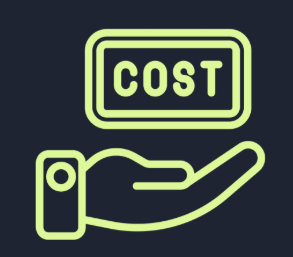What is the Secret to a High Growth Portfolio?
The answer is not chasing the latest “top performing mutual fund.” True wealth creation comes from following a disciplined process, aligning investments with your goals, and avoiding the common mistakes that erode compounding. With the right approach, your portfolio can grow consistently and keep you on track for financial freedom.
AUM
Clients
Google Reviews
350+ Media Mentions
Why Most Investors Fail to Build Wealth
Chasing Returns
Switching funds based on past performance leads to wealth erosion.
Ignoring Goals
Investing without clear goals reduces focus and discipline.
Falling Into the Recommendation
Trap Relying on generic fund tips instead of personalized planning weakens portfolios.

Radhika Gupta
MD & CEO
1.png)
FinEdge's commitment to delivering elite service and their focus on putting clients first, distinguishes them in the industry. By consistently prioritizing their clients and providing investment platforms that cater to individual financial goals, FinEdge empowers people to achieve their aspirations.
Why Compounding Is the Real Secret to Growth

Compounding works best when investments are uninterrupted.

Excessive portfolio churn destroys compounding benefits.

Risk aversion (like sticking to FDs) limits long-term wealth potential.

Dipping into investments for short-term wants erodes future corpus.

Resilience and consistency drive true wealth creation.
Common Mistakes That Kill Compounding
Many investors lose out on growth not because of bad funds, but because of poor behaviour.
Excessive Churning
Frequent switches add costs and reduce returns.
Avoiding Measured Risk
Overdependence on “safe” products prevents wealth building.
Short-Term Wants Over Long-Term Needs
Withdrawing for immediate desires destroys compounding benefits.
Why Process Beats Picking the “Top Fund”
Highest returns do not come from the last 12 months’ winners. Constantly chasing alpha only erodes wealth. Instead, wealth comes from:
-
Defining clear goals.
-
Matching asset allocation to timelines and risk tolerance.
-
Staying invested with resilience.
-
Reviewing and rebalancing periodically.
Platforms like FinEdge’s DiA focus on behaviour and processes, helping investors build resilience and stay invested through all market cycles.
Why Choose FinEdge
FinEdge’s goal-based investing platform, Dreams into Action (DiA) blends cutting-edge tech and human expertise to provide unbiased investment guidance.
- No Sales Targets
- No Product Pushing
- No Cross Selling/Upselling




